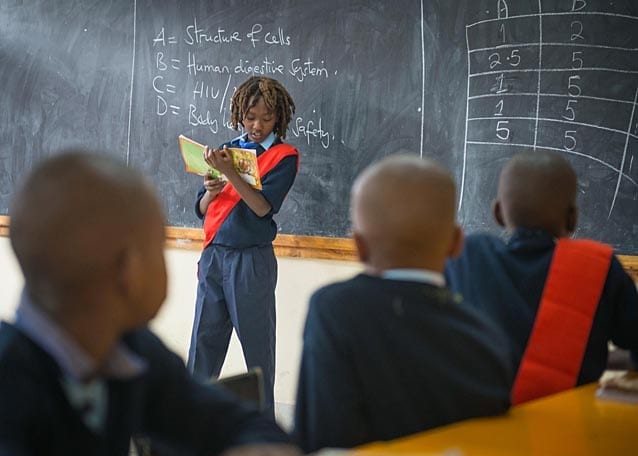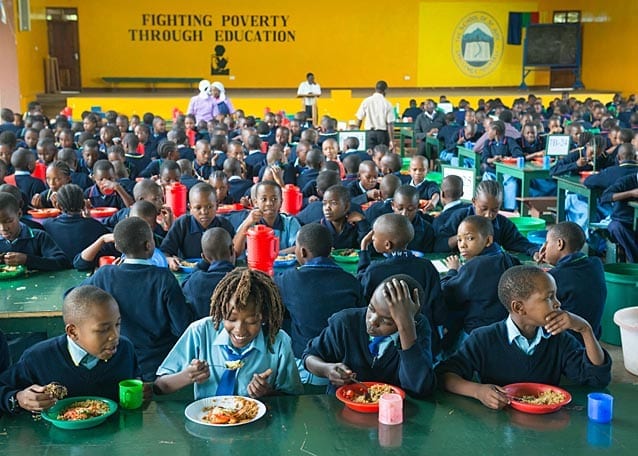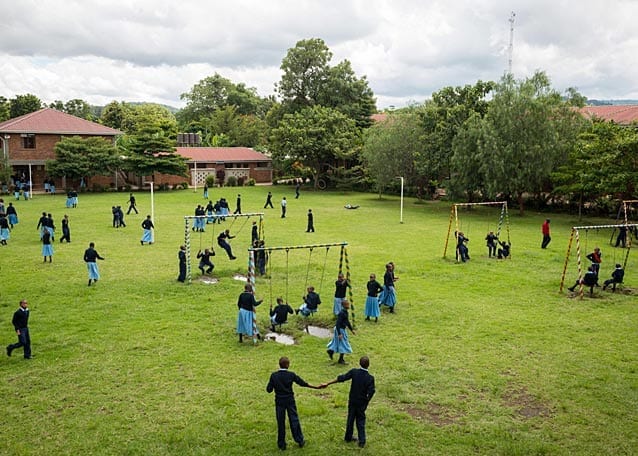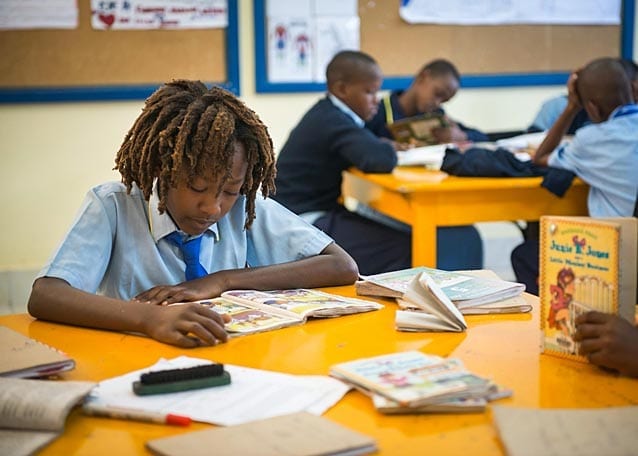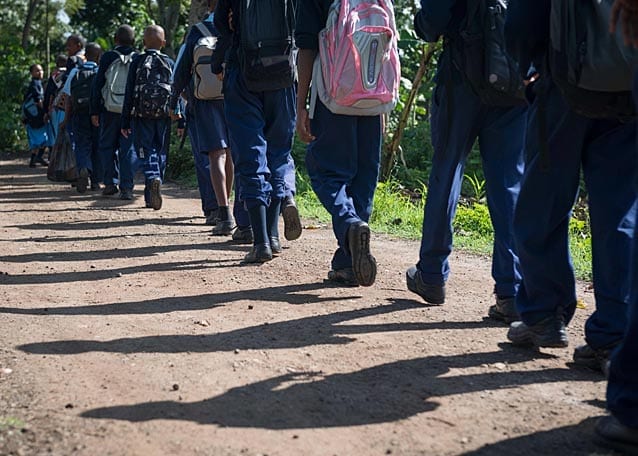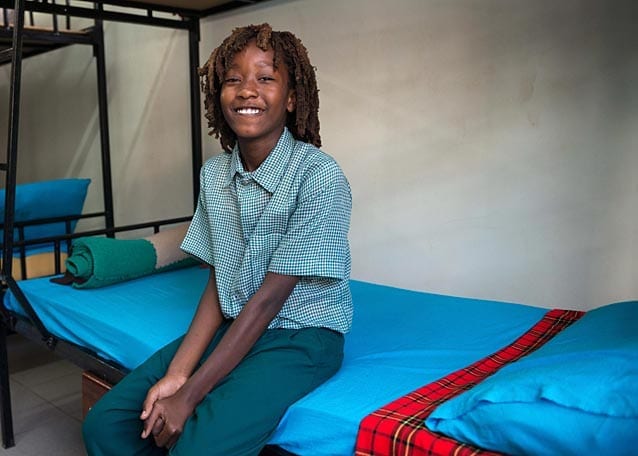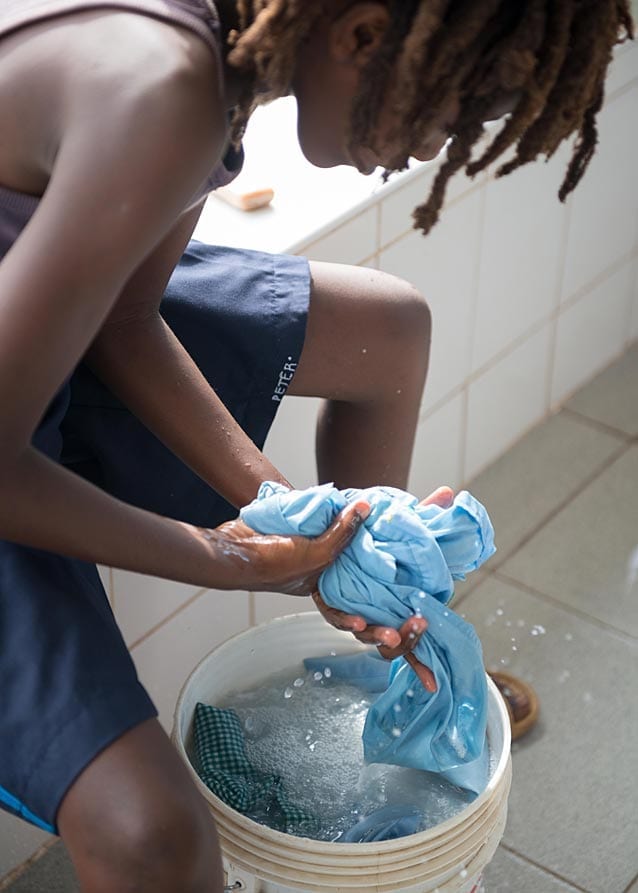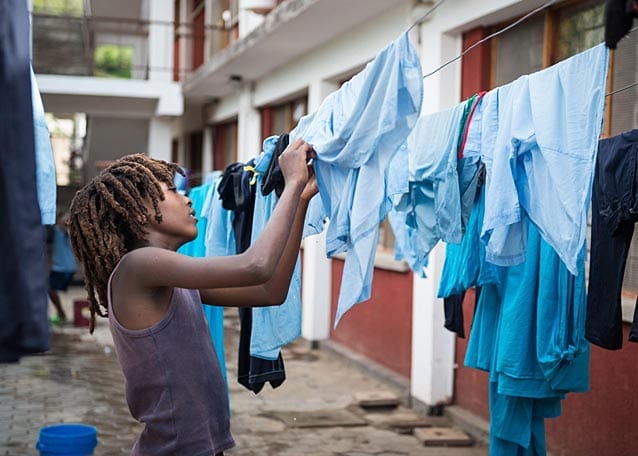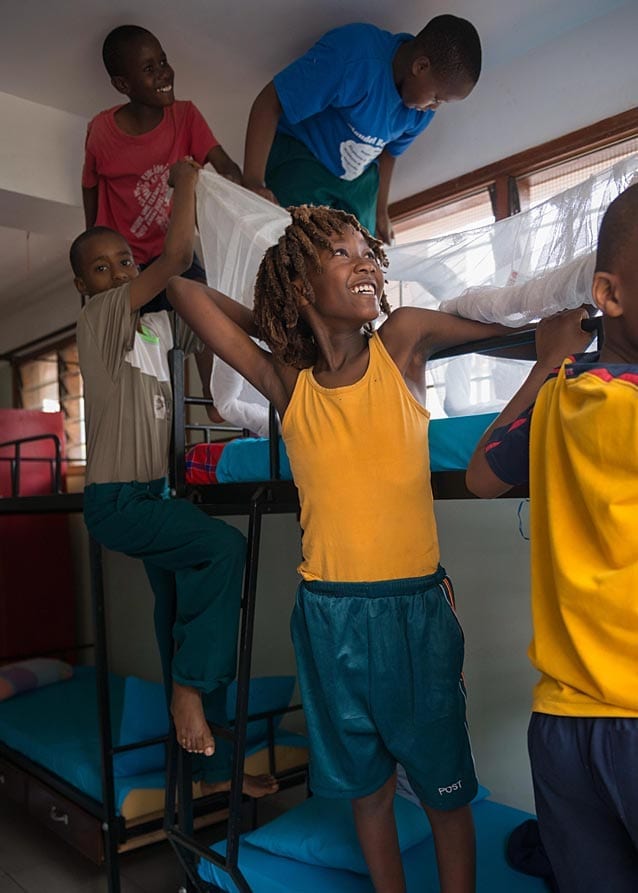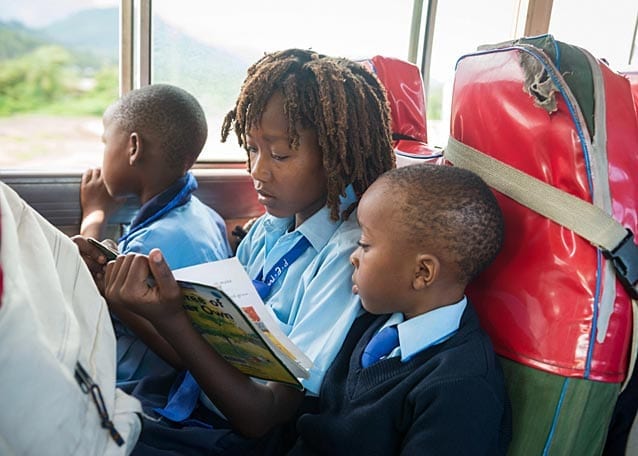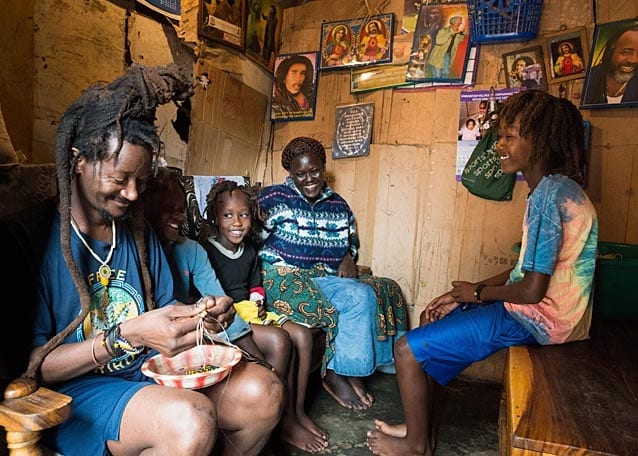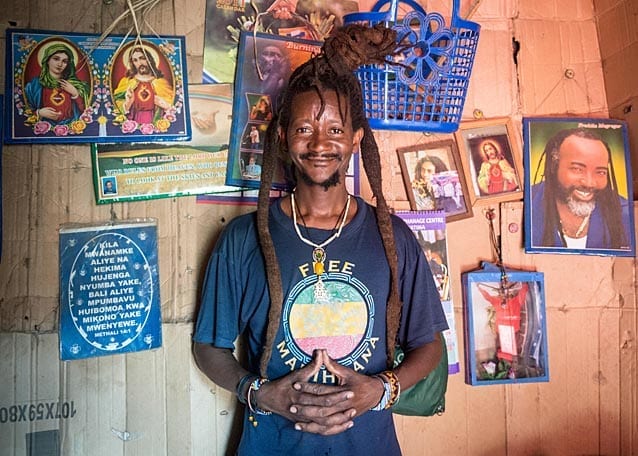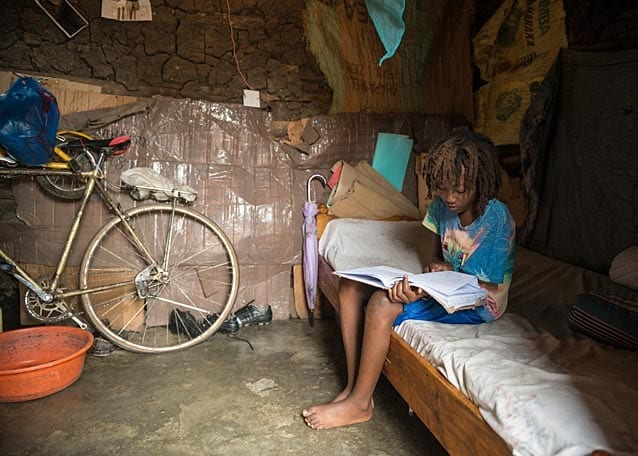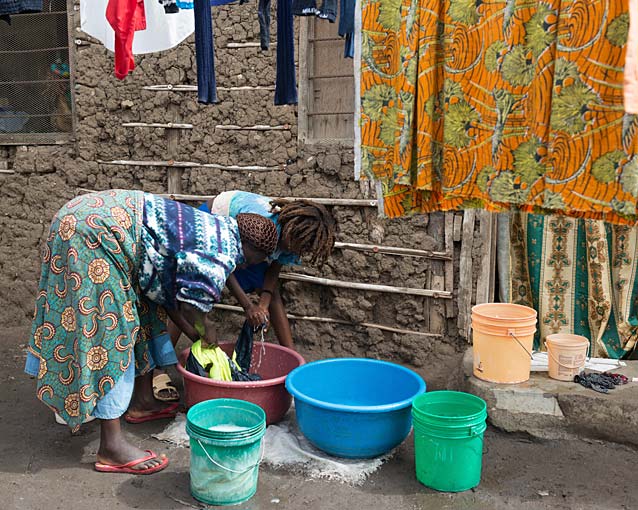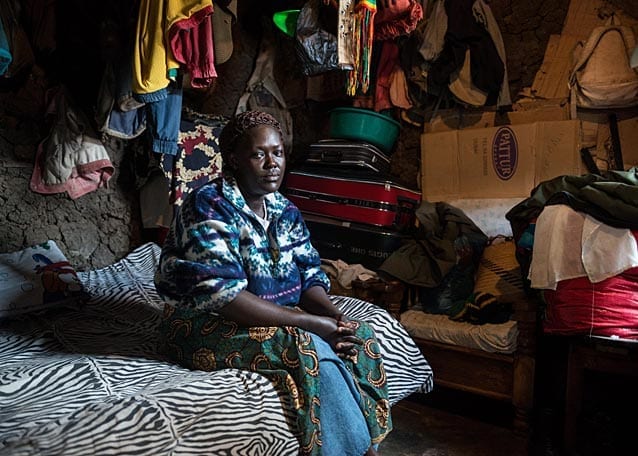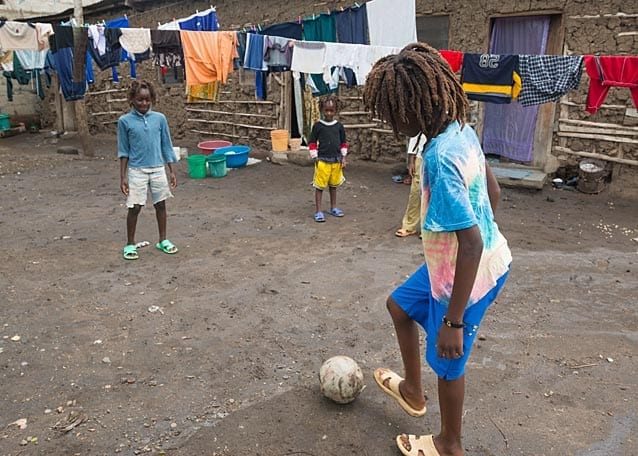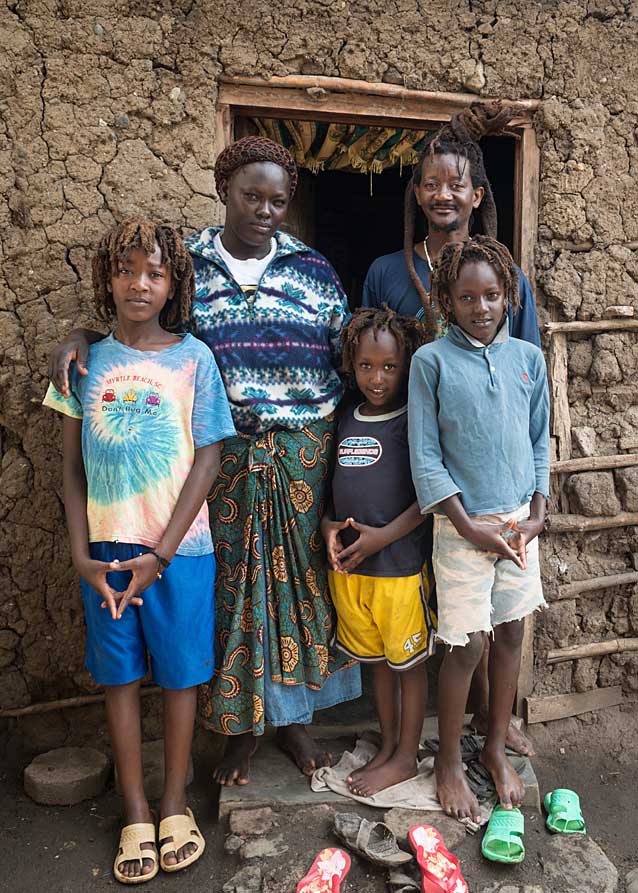In under a year, our first set of students will do something they once thought would never be possible - graduate from secondary school. Many of them have been with our school since its early days, studying hard so they can pass their national exams and achieve high marks to get into their chosen university or secure a job.
There are some Form 6 students who only started at St Jude‟s last year and have come through years of government schooling. Their education took place in classrooms filled with more than a hundred students, often sharing only one textbook between them.
Coupled with that, they were being taught often by poorly qualified teachers, due to a lack of teacher training colleges in the country.
Yet, in the face of these immense challenges they proved that they desperately wanted to learn and, after going through an application process, were accepted into St Jude‟s. Now their futures are looking brighter, but some of these older students are still unsponsored and need your help.
Since starting at St Jude‟s last year, Pascal has kept up his commitment and strong work ethic towards his studies, managing to get A-level results in almost all of his subjects. It has not been an easy road for him. He grew up in Karatu, a remote area about two hours away from Arusha with his mother, who is a farmer, along with seven brothers and sisters. His father passed away when he was young. Most of his siblings only made it to the end of primary school for their education.
Pascal went to a school in Karatu, which like many other government schools in the country, did not have proper materials, books, equipment and teachers.
Adding to the challenge was that he could not speak any Swahili or English when he started secondary school, as it was not properly taught at his former school. His mother also did not know either language. Pascal could only speak the language of his Iraqw tribe but he did not let this deter him.
He could not stand to fall behind in his studies, so during his holidays he would do extra work with his friends and other local children and they would share things they had learnt with each other. By the time Pascal got to Form 4, he had improved his ability to speak and understand Swahili and English. He and his friends had created an education for themselves.
Over time, Pascal heard about the high-quality education at St Jude‟s and knew it was an opportunity to realise his dreams. He sat our Form 5 entrance tests for Chemistry, Physics and Biology and passed all of them. His hard work paid off when he got accepted into our school. He now loves having his own set of textbooks and learning at St Jude‟s, which strives to have great resources.
Pascal is now closer to his dream of becoming an Environmental Management Officer so he can protect the natural resources in his country.
“There is much misuse of natural resources in Tanzania and elsewhere and I think if I was in that position, I would have the knowledge to educate the people and pass on information about how to look after the environment,” he said.
Our Form 3 student, Wenseslaus, has had an amazing opportunity. He had an exciting time away at the African Leadership Academy in Johannesburg, South Africa, learning about leadership building and teamwork. This trip is part of a prize that he won for coming third in the International Youth Day Essay Competition last year. He was the only Tanzanian among the winners.
Here is the reflection Wenseslaus wrote about his time at the academy:
African Leadership Academy
During the three weeks in South Africa I felt very privileged as the only young boy from Tanzania. I met around 44 other students from all over the world. Everything was exciting to me starting from my departure from Tanzania to my arrival in South Africa. I am now experienced with all the travelling bureaucratic procedures out of my country. I also had a chance to experience other people‟s culture.
African Leadership Academy is one of the places I had for a long time wished to be because I used to see it in the media, but I couldn‟t believe I was there at last. During the stay we did a lot of experiments to do with leadership and entrepreneurship. They were so helpful to me because they changed my mind set and how I used to think.
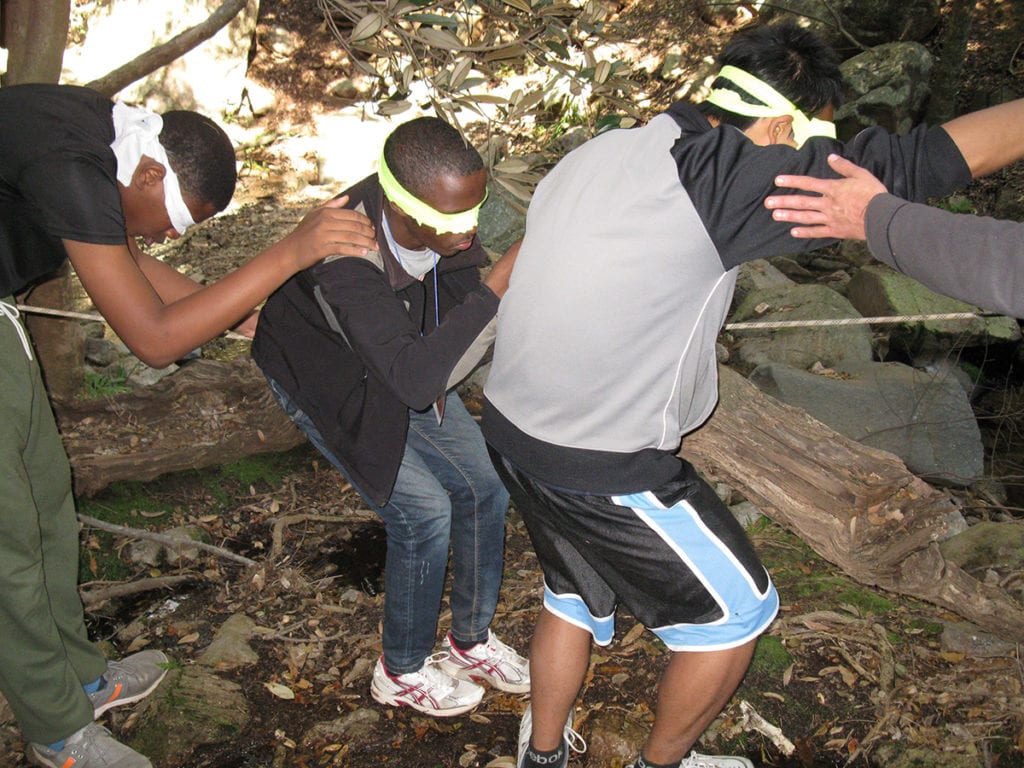
Touring around Johannesburg
We also went on a tour to different parts of Johannesburg. We visited three museums, Nelson Mandela‟s museum, Hector Peterson‟s museum and the Cradle of Human Kind museum. I enjoyed Cradle of Human Kind museum the most because we went on a boat ride and could see volcano rocks, ice and fire on the sides of the river all inside the same museum.
We also visited three houses where Nelson Mandela lived. We went to Pilanesburg National Park where we could see cheetahs, elephants, zebras, antelopes and wildebeests. We went hiking in a place called kloof waters. The tallest building in South Africa is another place we visited. It was a 50 story building and we could see the whole of Johannesburg.

Furthermore we visited some very famous streets in Johannesburg like Soweto, Alexander and Hillbrow. In these places we saw how other people live.
Back at the academy we had teachings and classes on very interesting lessons like identity, need identification, proactivity, project planning, emotional intelligence, public speaking and lastly, seminal readings. In the seminal reading we read articles about the history of South Africa and all the people who contributed to the struggle for independence. We were also asked to do a project on need identification and my group was very successful. Also my house won a certificate for the best presentation of our project. I personally won a humility award.
Hundreds of students from The School of St Jude proudly celebrated Tanzanian, African and other nationalities at its recent Cultural Day held at its secondary campus.
The students did a range of creative performances spanning from hip hop, modern and traditional African dances as well as drama pieces showing a tribal King’s lunch and the hard work of African mamas.
“It was wonderful to see the creativity and imagination of the students,” said St Jude’s School Director Jon Ford. “It shows the wide range of skills our students have as well as the amazing academic achievements in the National Exam, including recently scoring 90 per cent Division 1 in the Form 4 mock exam.”
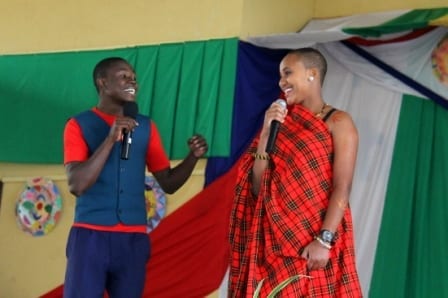
The fashion show was a highlight of the day with the students spending hours stitching together unique, colourful designs using kitenge, other East African fabrics and local produce including maize and leaves. It was a mark of respect for their culture but students also used Australian and US designs to show their appreciation of other nationalities.
“I used kanga, tissue paper, plastics and wood as they were local resources I could easily find,” said Anastazia, Form 3 student at St Jude’s. “My dad is a tailor so I feel sewing is in me as I love designing.”
Anastazia’s well-crafted clothes caught the eye of the judges and she won overall first prize and for her fashion label, Nyumbani Design.
Two talented St Jude’s secondary musicians, Elisante and Dorcas put on a top performance and were surprised and excited to receive a recording session given by sponsor, Fnouk Studios, for their efforts.
“I was really impressed by the students’ designs and performances and how Cultural Day builds a lot of confidence with the kids,” said Sune Mushendwa, Director of Fnouk Studios.
The event’s other sponsor, Kase Stores Ltd, gave book vouchers for the 1st, 2nd, and 3rd place overall winners.
Guests of honour included Miss Arusha Lillian Deus and Hisia, a Tanzanian singer and songwriter based in Nairobi who gave an inspirational speech on stage to the students about facing hard times in life.
“From an artist perspective, we have to do everything, when the road is rough and there are a lot of challenges, don’t let the challenges get you down, shake off the dirt and keep going,” said Hisia.
Six years ago, Eva’s face beamed from the cover of our school founder Gemma Sisia’s autobiography, titled ‘St Jude’s.’ Eva was a young girl who was still realising her dreams. She epitomised the happy, bright-eyed child at St Jude’s who is overjoyed about getting a free, high quality education. Now she has grown and is developing into a well-adjusted, young adult. She is in Form 1 and has big aspirations, with a world of possibilities in front of her. This is her story.
Eva started at St Jude’s in 2006, when the school was four years old and we had just over 600 students and around 115 staff.
Eva’s family includes her father, John, mother, Penina, and younger brothers Richard and Benjamin. They live in a two-room brick home. Like many other Tanzanian dwellings, it has no plumbing (water is collected from a neighbourhood tap for a small monthly fee) and meals are prepared over a charcoal- or kerosene-fuelled stove.
To support the family, Eva’s father finds work where he can as a carpenter and a mason. Her mother works at their home as a tailor. They are big supporters of Eva’s education and encourage her to continue learning in the hope that one day she will have qualifications and a successful career so she can break the cycle of poverty for herself, help them and her community.
Eva showed promise as a student at a young age. As a child, she would often ask her parents to send her to a school which would enable her to learn English. “I wanted to learn English because I knew in this world of today that I needed it and I strived to get a high quality education as I wanted to have a bright future,” said Eva.
She grew up playing with her younger brother and their games would regularly revolve around learning. “There was one game where we liked to draw and the first one to finish was the winner. The aim of it was that you drew things, like an egg and you also wrote the name of it in English. So, I always liked to play games where I could learn new words.”
Before St Jude’s, Eva attended a government school where nearly all of her subjects were in Swahili. It was a limited learning environment where she felt she was not able to reach her full potential. She remembers hearing about St Jude’s at her old school and then soon applied.
It was a turning point in her life. After passing the relevant checks, she was accepted and began a new chapter of her life. “When I found out I was going to St Jude’s, I thought it was amazing and I was very happy. It meant a lot to me,” said Eva.
Since then she has reached a number of milestones. She successfully completed her seven years of primary schooling, has begun high school and has impressively scored A’s in almost all of her subjects. She also boards at the school’s Smith campus which is preparing her to be a strong, independent individual.
Eva’s life has been transformed because of her education. She has sponsors in Australia and is acutely aware that their support has enabled her to have clean uniforms, a place to board, fresh, nutritional food, committed teachers and access to state-of-the-art ICT laboratories and well-stocked libraries.
Research supports the assertion that sponsorship can make a huge difference in a child’s life. Bruce Wydick, an economist from the University of San Francisco, carried out a study in six countries over three continents, including in Uganda and Kenya. He and his team studied more than 10-thousand individuals who had been sponsored in the 1980s. The overall result was that student sponsorship works and that 50 to 80 per cent are more likely to complete a university education.
“By sponsoring a child at St Jude’s you will change the life of that child, their family, their community and contribute to changing their country,” says St Jude’s School Director, John Ford. “The evidence and the economics say it works and if you visit the school you can see it for yourself. What better way is there of using your money?”
Eva, the little girl that shyly took her first steps through the St Jude’s gates seven years ago, has grown into a happy, confident young adult. She is like any other teenager who enjoys spending time with her friends and playing card games. In a few years, Eva plans to head to university to study engineering and work in Tanzania. Like the young girl on the cover of St Jude’s, she is optimistic, loves life, has the world at her feet and is ready to embrace it.
As our first class of secondary students gets ready to graduate in 2015, we took an important step to help them plan their professional lives beyond the school grounds: we organized St Jude's Careers Fair.
Close to 700 secondary students had the opportunity to move around different tables and talk to 36 people about their professions in medicine, law, architecture, engineering, business, aviation, government, banking and journalism, among others.
They also collected information and spoke individually and in groups with representatives of 10 colleges and universities from the Arusha Region.
“This event helped me change my mind about my career choice,” said Penueli, a 17-year old student.
“I was thinking of becoming a copy editor for companies, but now I know I want to go into TV journalism.”
Students and staff from other schools in the region also participated in the event and were able to broaden their knowledge of career possibilities.
At the opening, students sang, presented short skits and gave talks related to their career choices. A number of local speakers encouraged students to apply themselves to their studies in order to build a solid career.
Jon Ford, St Jude’s new School Director, closed the event by telling the story of a student in the school he managed for 10 years in West Sussex, England. The student dreamed of becoming a doctor and studied really hard until she was accepted into medical school. The next time he saw her she was a well regarded doctor.
“You too can become doctors, or any other profession you desire,” he told the assembled students. “Just follow your dream and reach for the skies.”
